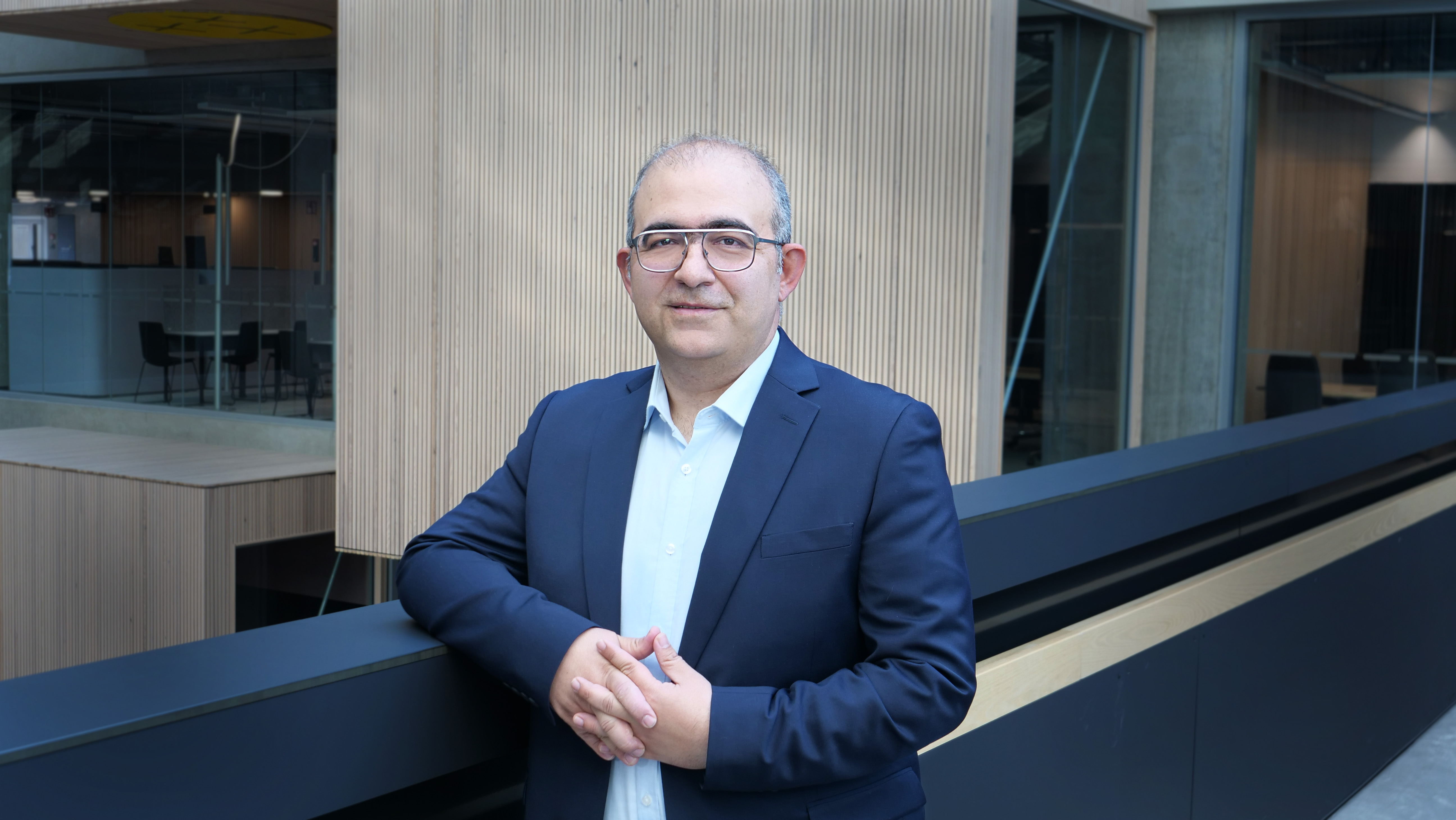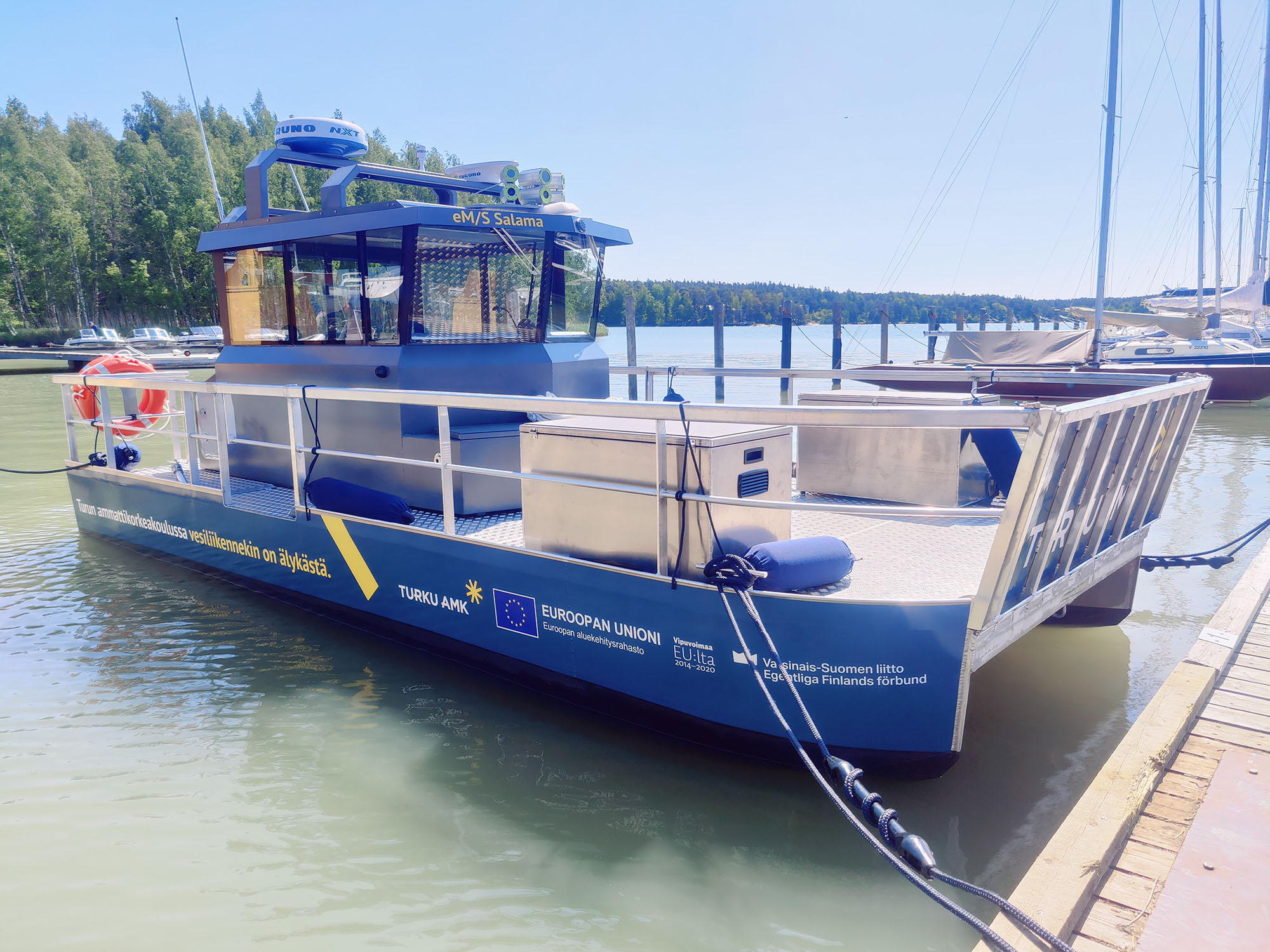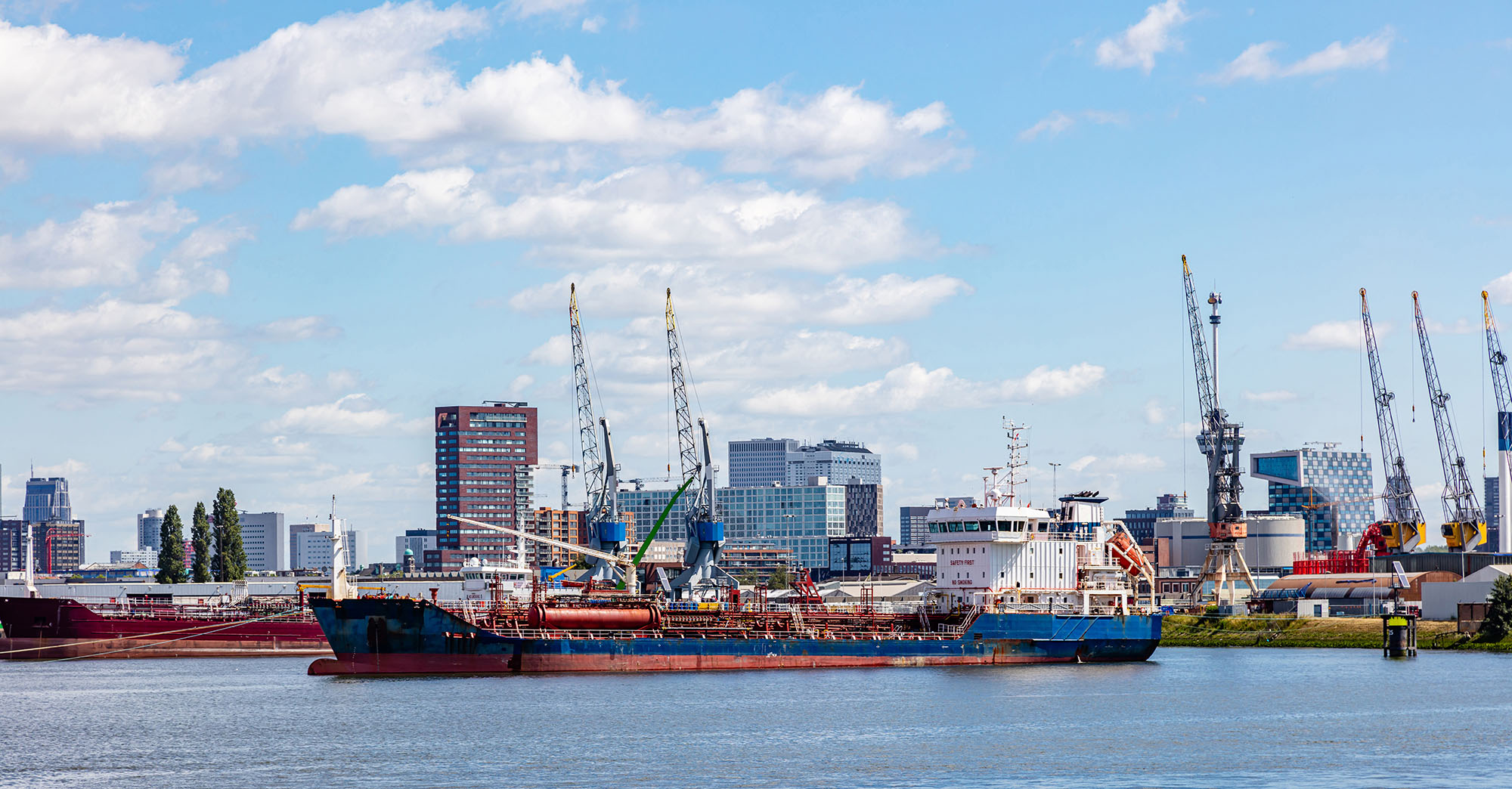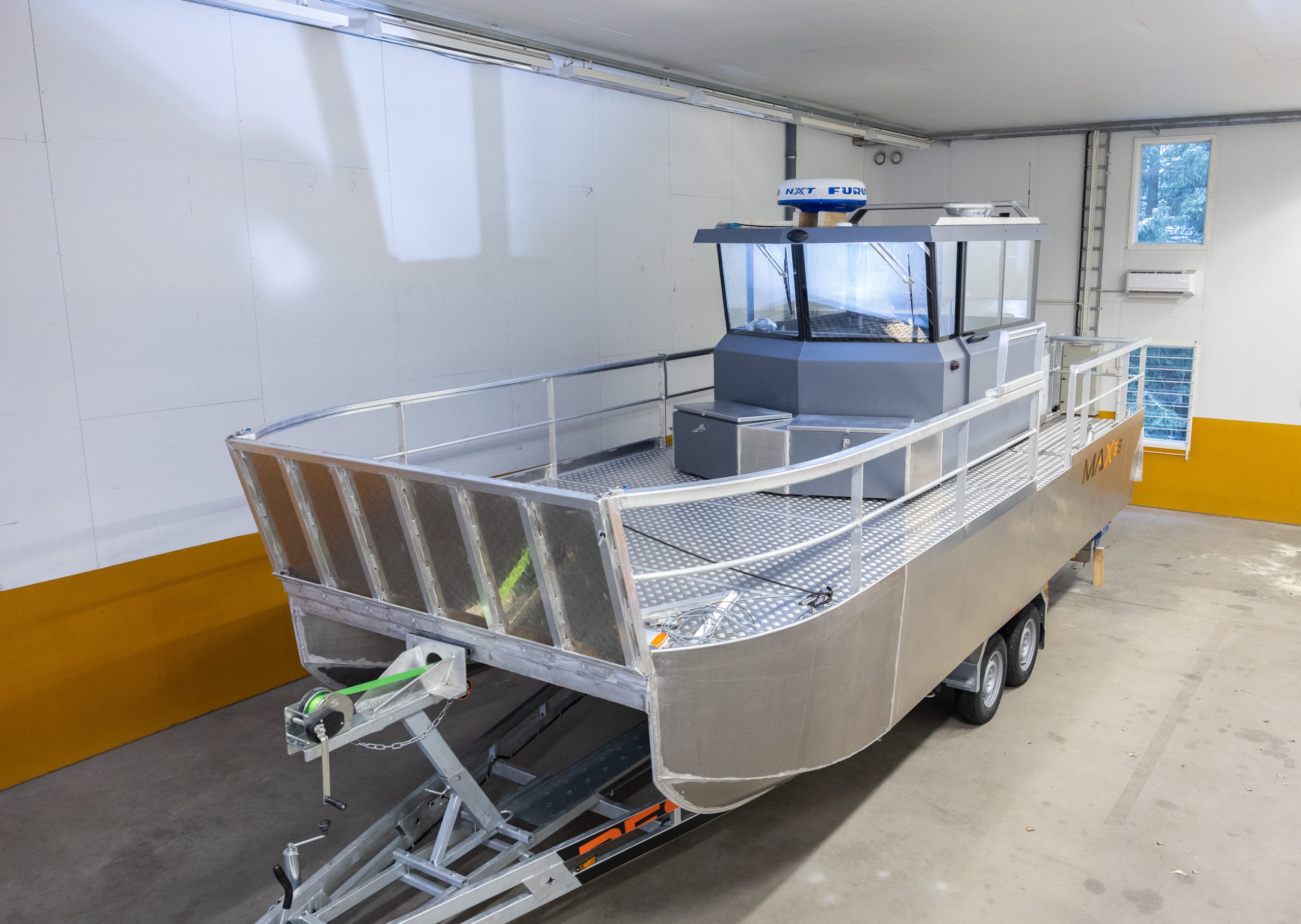Amin Majd is a specialist in artificial intelligence in the Autonomous and Intelligent Systems (AIS) research group at Turku University of Applied Sciences. He is particularly interested in autonomous vehicles, such as drones and maritime transport.

Amin Majd knows about artificial intelligence and autonomy.
Published:
Edited:
Text and photo: Siiri Welling
The impressive research career of Amin Majdi, an AI researcher at Turku University of Applied Sciences, actually began twenty years ago. Back then, he started as a project manager in an Iranian technology company. With a degree in computer science from university, Majd was introduced to artificial intelligence, autonomy and algorithms, which led to his doctoral studies in Finland. But unlike other researchers, Majd did two PhDs at the same time.
“Actually, the reason was that I found two very interesting dissertation topics. After talking to my supervisor, I realized that doing two PhDs is challenging, but not impossible. So I decided to do two dissertations, which were completed within about five years,” says Majd.
A doctoral thesis at the University of Turku focused on optimisation, while another, at Åbo Akademi University, focused on navigating autonomous vehicle fleets. Through the DIANA project, Majd developed software that enabled safe and efficient navigation for a large number of different vehicles or passengers on different modes of transport. No comparable software existed.
“The idea came from drones. A stand-alone autonomous drone may not be successful, as it has to be controlled one at a time. But if, at the same time, it is possible to control several drones autonomously at the same time, we can improve border control, for example. The idea is to create an intelligent dynamic network in the sky, which, by changing its position, can be used to control a drone flock, or why not any other means of transport,” says Majd.
A stunning dataset of the Turku archipelago
With drones and optimisation, Majd also became more interested in autonomous transport and vehicles. He is currently part of the Autonomous and Intelligent Systems (AIS) research group at Turku University of Applied Sciences, working on the ARPA and Tehoteko projects. In the latter, an autonomous vessel was launched in early June to collect data on maritime traffic and develop autonomous transport. Majd has developed the artificial intelligence used on board. For example, he has collected a huge amount of image data from the Turku archipelago sea for the project.
Amin Majd strongly believes that full autonomy in maritime transport is possible within four years.
“We now have the largest and most comprehensive open data set of annotated marine environments. Our dataset includes 120 216 RGB images, 53 108 stereo images, 60 108 multi-image images, 36 hours of LiDAR data and 24 302 drone images. In addition, we used GANs to create synthetic image data that simulates different weather conditions. As a result, we produced 1 322 726 synthetic and annotated images. Using this data, we trained neural networks to detect objects and developed a depth detection algorithm based on stereo vision cameras,” says Majd.
Amin Majd strongly believes that full autonomy in maritime transport is possible within four years. He points out that autonomy is not intended to replace the work of a real person. Instead, autonomy can make work easier and prevent errors caused by human factors such as fatigue. But even if technology makes autonomy possible in maritime transport, legislation tends to lag behind. The same is true for autonomy in public transport, for example.
“The current problem in public transport is data collection and how to combine data. Trams could perhaps be made autonomous more quickly than, say, buses, as it could be easier to collect data from a tram running on rails. Of course, ignoring other traffic could also slow down and complicate the development of autonomous public transport,” says Majd.
Artificial intelligence and diversified research
In his spare time, Majd spends time with his family and occasionally plays guitar and Persian tar player. AI issues may follow him home, though, as his spouse also works on AI issues at Turku University of Applied Sciences. Although the current use of AI is still generally considered weak, Majd believes that it is rapidly improving and becoming more efficient.
“In AI development, it is important to find enough high-quality data. But another important thing is mathematical skills, which should be invested in both education and AI: there is a high level of mathematics behind the functionality of AI, and if we want to improve AI, we need to know a high level of mathematics.”
Majd has been working at Turku University of Applied Sciences since 2022. He praises the atmosphere and how well he has been accepted into the work community. He also praises the way of doing practical research: for someone who is used to theoretical research at universities, it has been a pleasure to be able to test the theory in practice.
“We are a practical college, with access to equipment and sensors. This makes it easier to see the work in progress. Also, students can quickly get to grips with what they are doing, and learn complex things in practice. That’s a very good thing.”
In addition to AI and autonomous transport, Majd has researched topics related to robotics and health technology. Majd admits that he is interested in many different things, as they are all interlinked in some way.
“I think these things also support each other. Of course, in the big picture, it’s good to look at one big picture, but within that big picture it’s good to look at another direction or path sometimes. Through that you can find inspiration or solutions to the original problem. Diverse knowledge helps to create better solutions,” says Majd.
The article was published on 8.8.2023 on the previous turkuamk.fi website.
Get to know our research
Read next
-
Press Release

Joint research infrastructure funding for Turku higher education institutions from the Research Council of Finland
The NEMESIS research infrastructure collects data related to the state of the environment and maritime safety in the archipelago. NEMESIS, a collaboration between three universities, enables long-term monitoring…
-
News

A handbook by Turku University of Applied Sciences and Fintraffic helps maritime cluster operators to protect themselves against cyber threats
Published by Turku University of Applied Sciences, the book takes the reader to the heart of the maritime cluster’s operations and provides a comprehensive guide to managing information…
-
Phenomenon

Efficiency and safety on board autonomous vessels – will AI drive the future of waterborne transport?
Will AI start operating Turku’s iconic city ferry Föri in the future? Autonomous waterborne transport is being researched and developed at Turku University of Applied Sciences. Published: Edited:…
